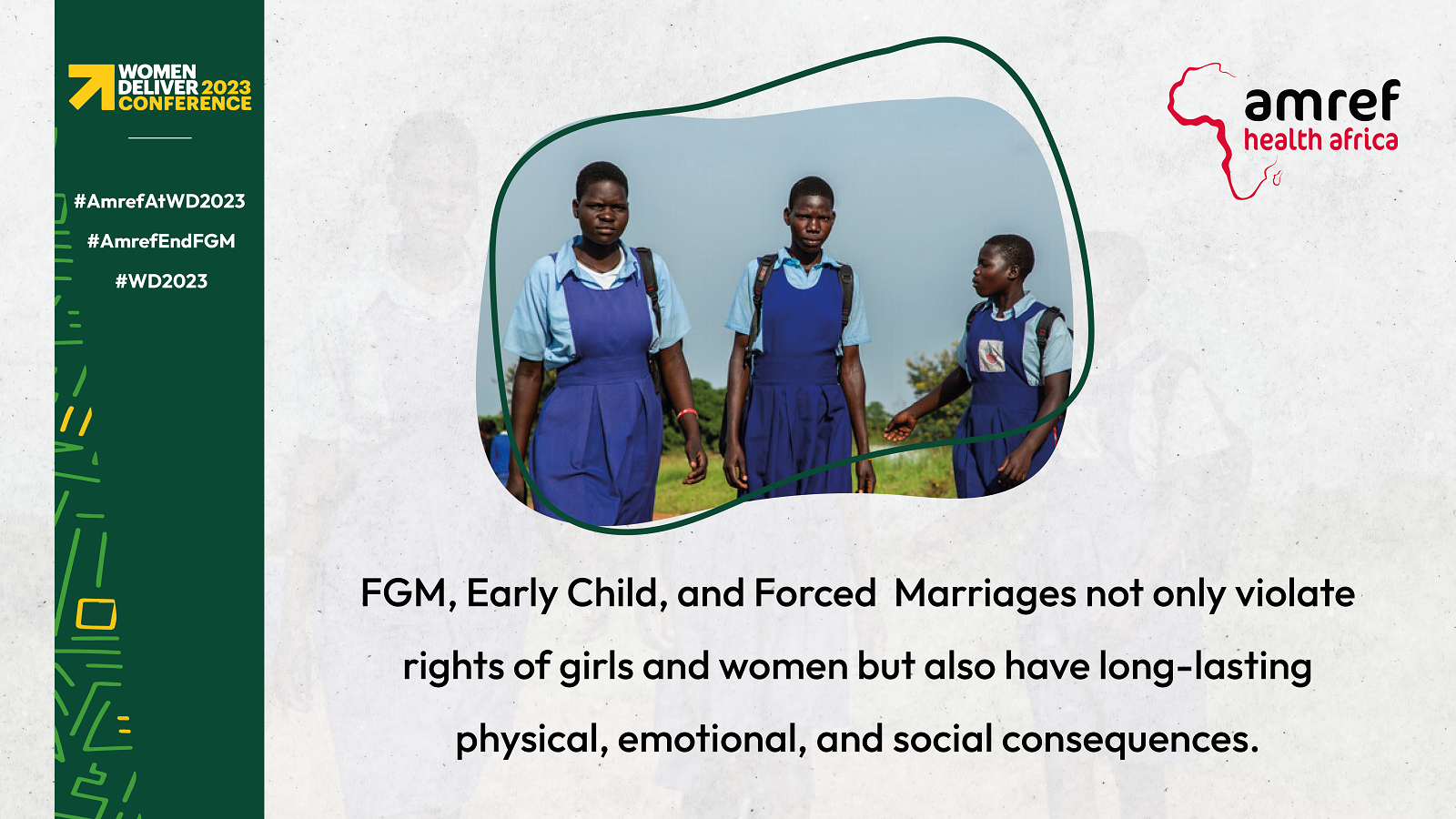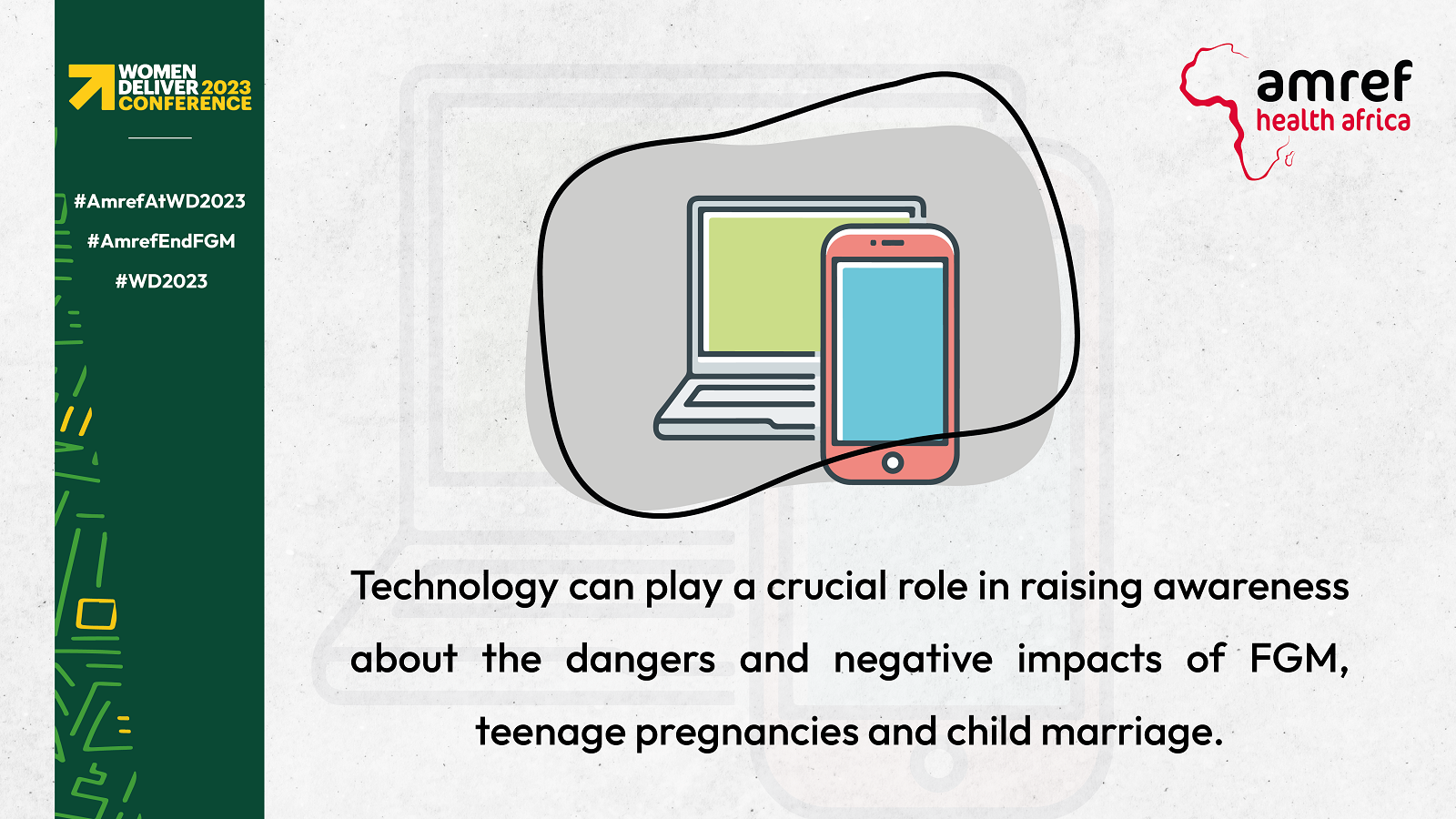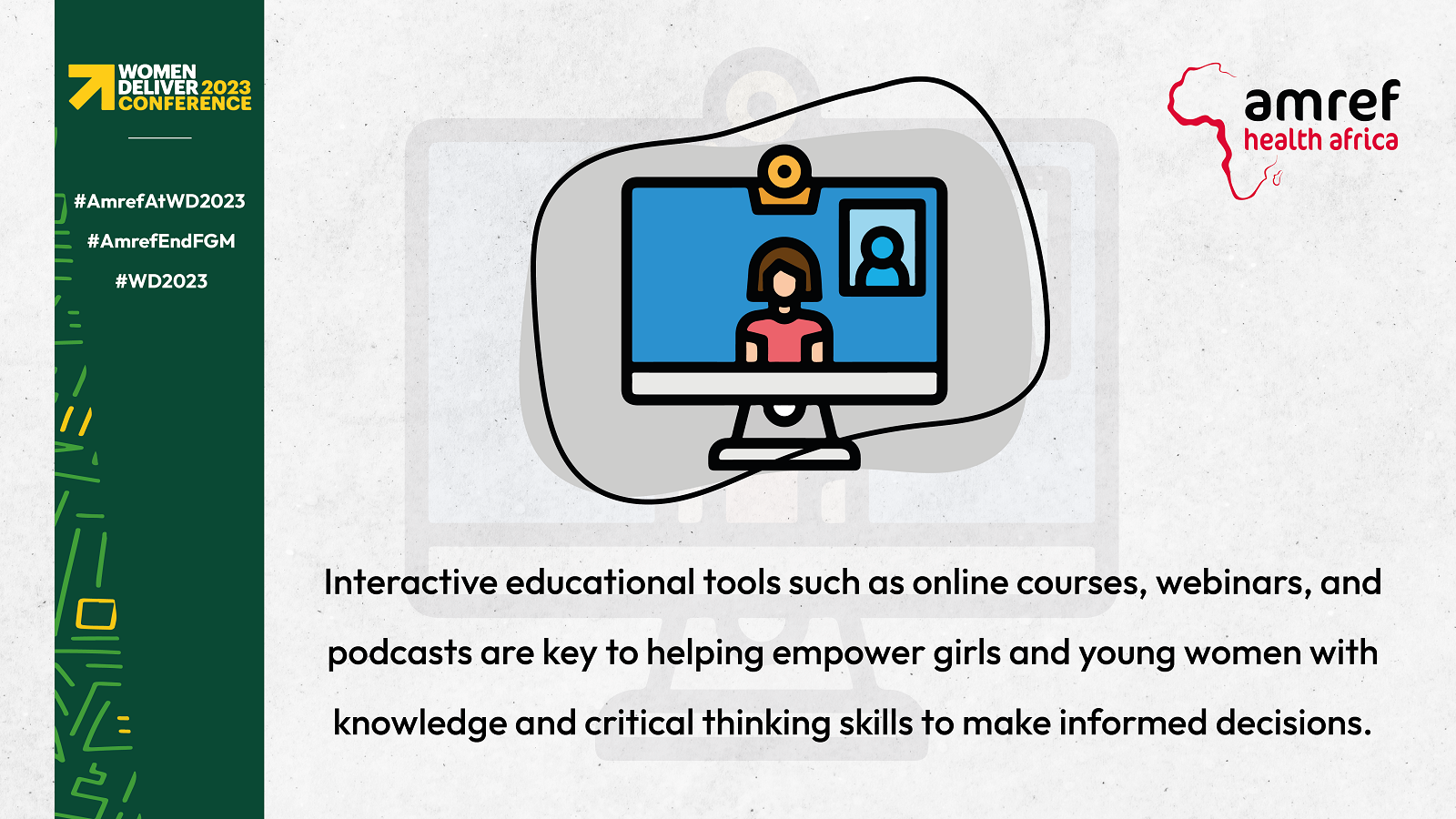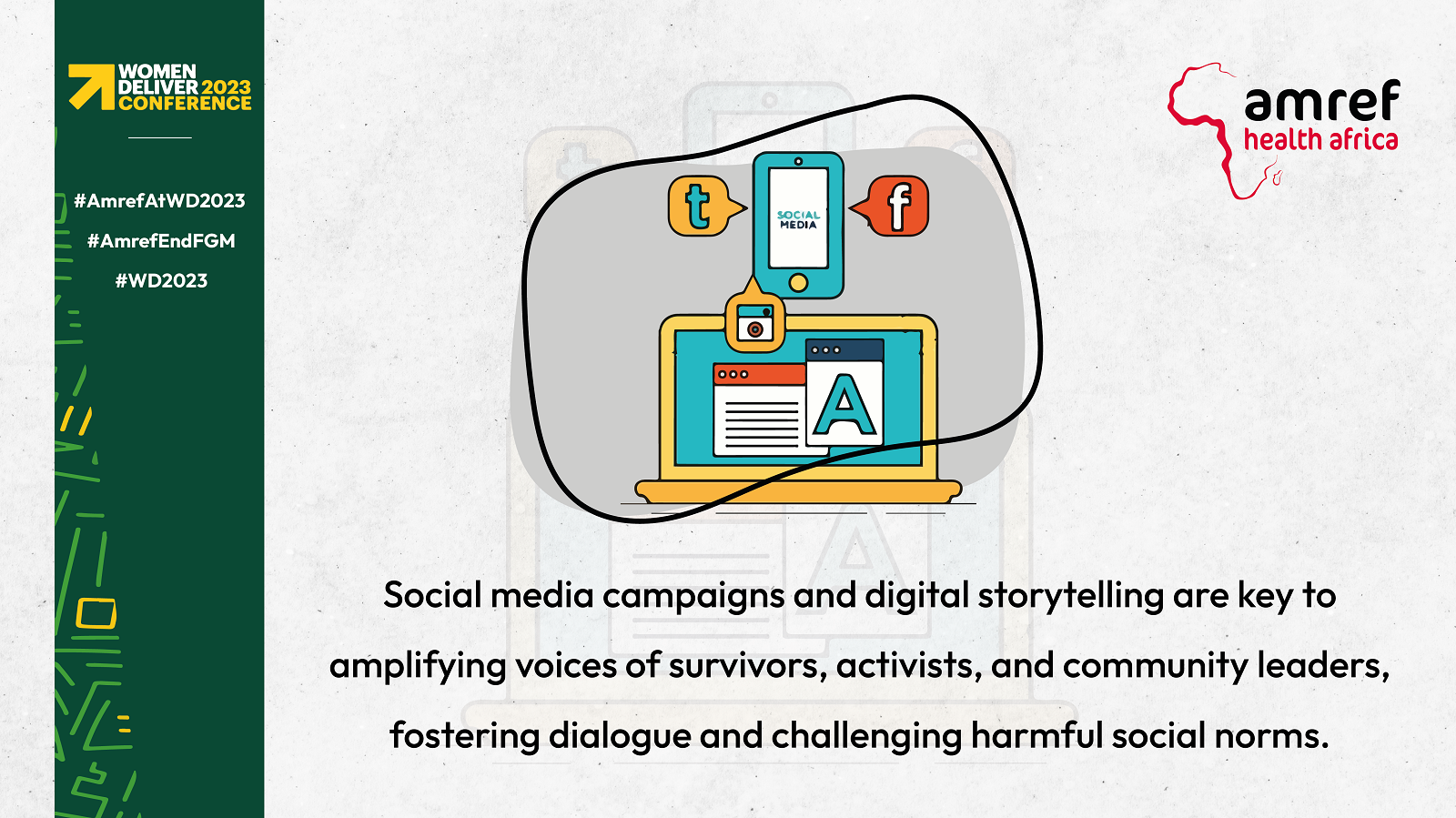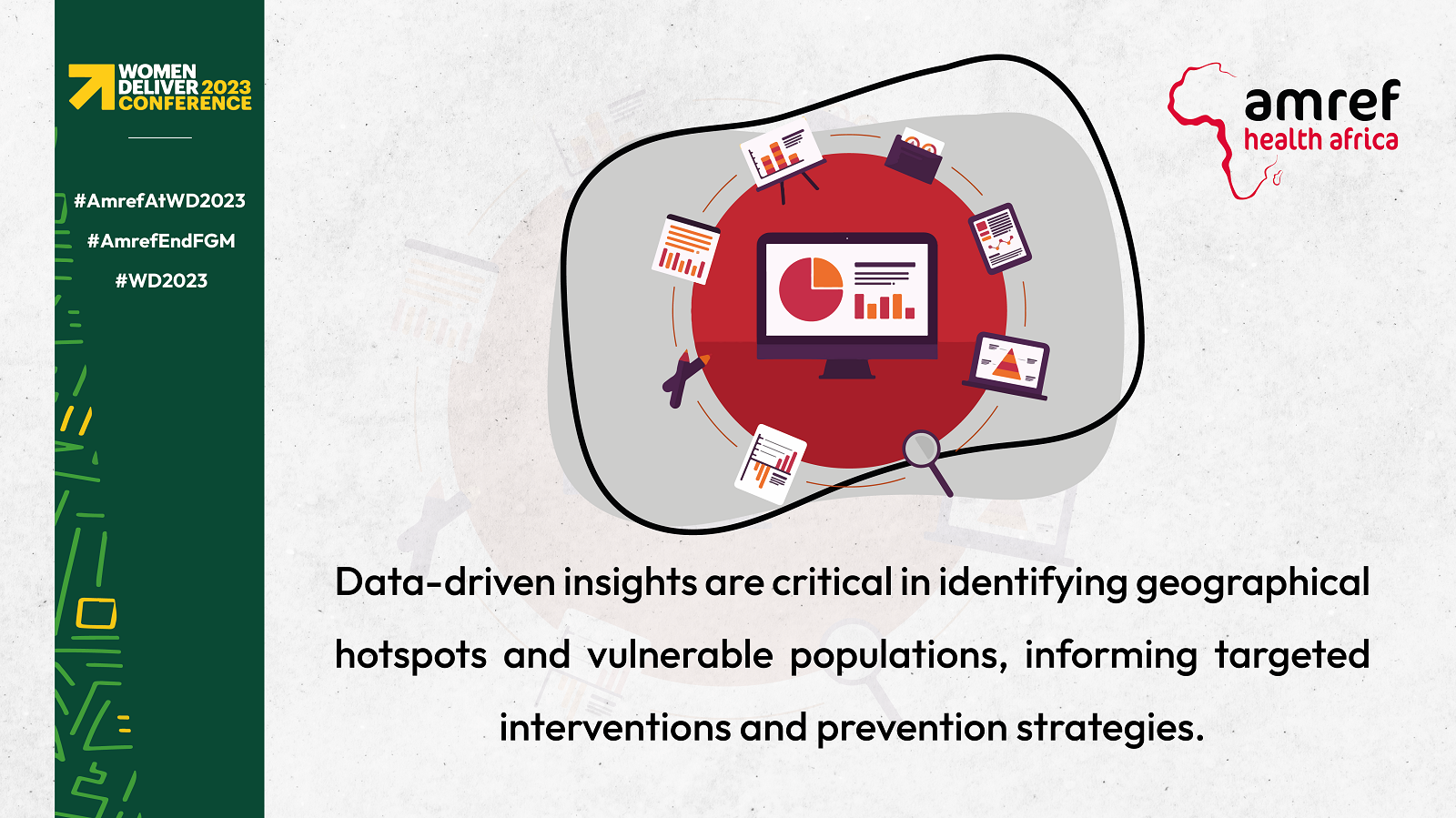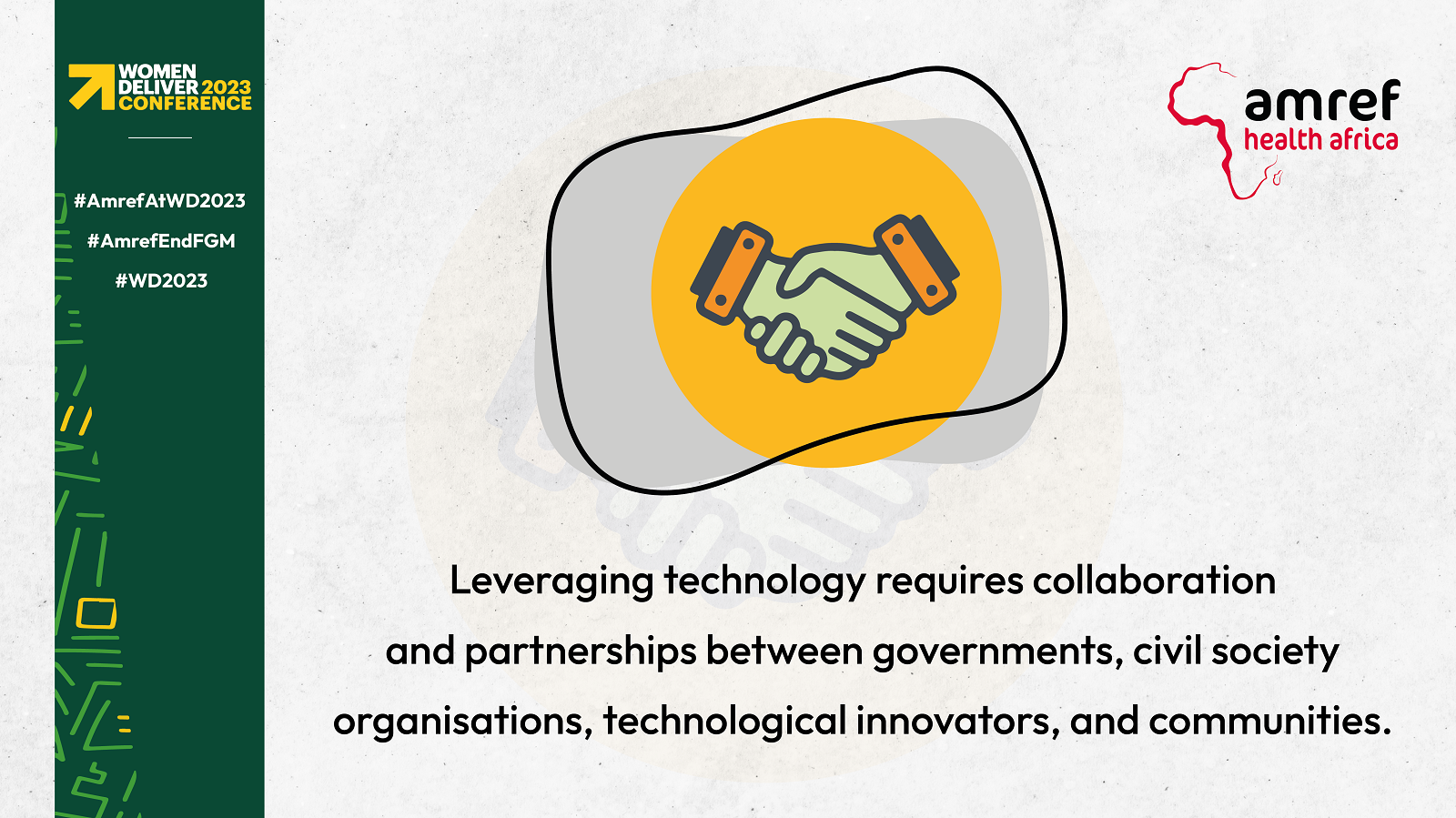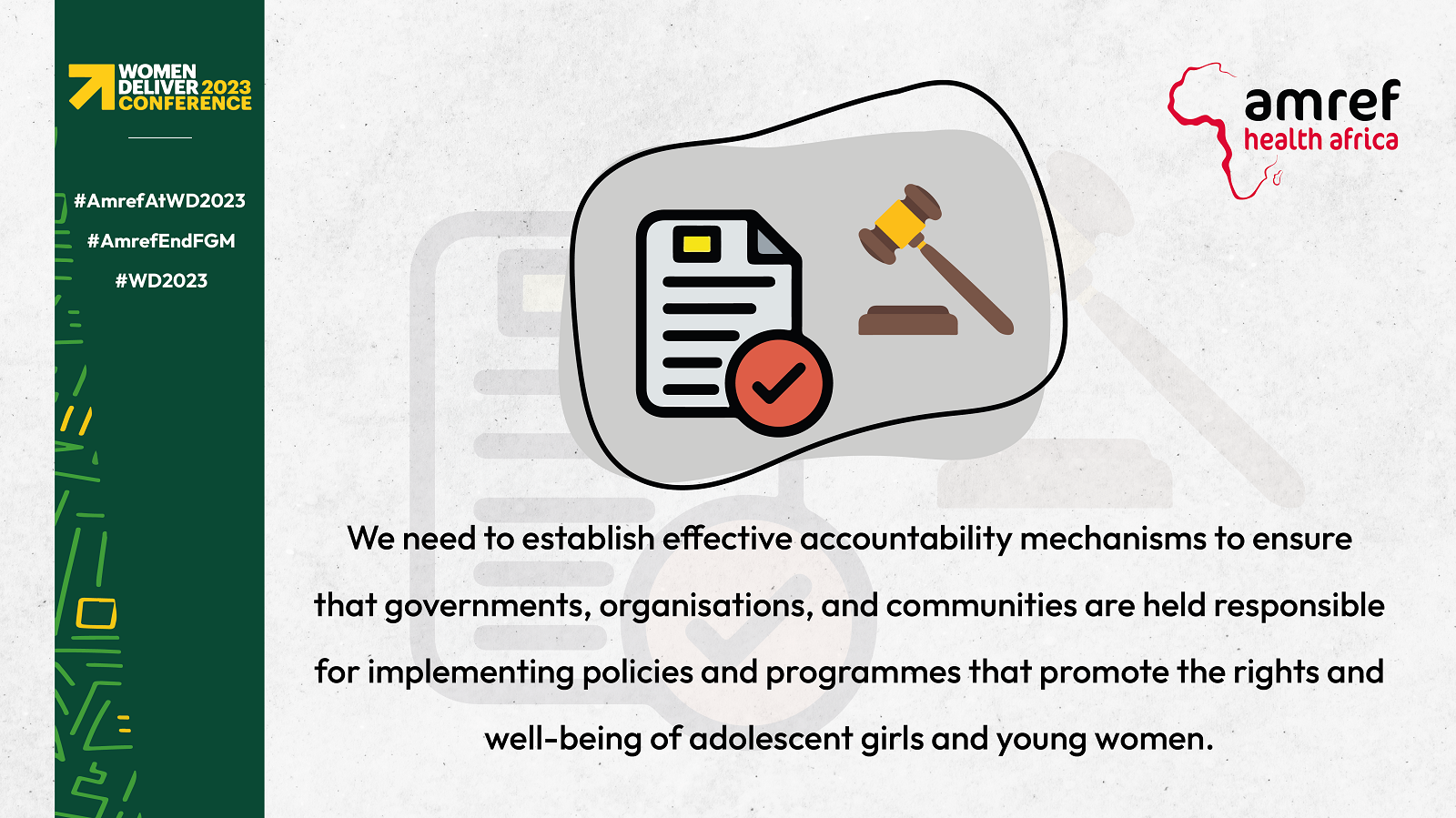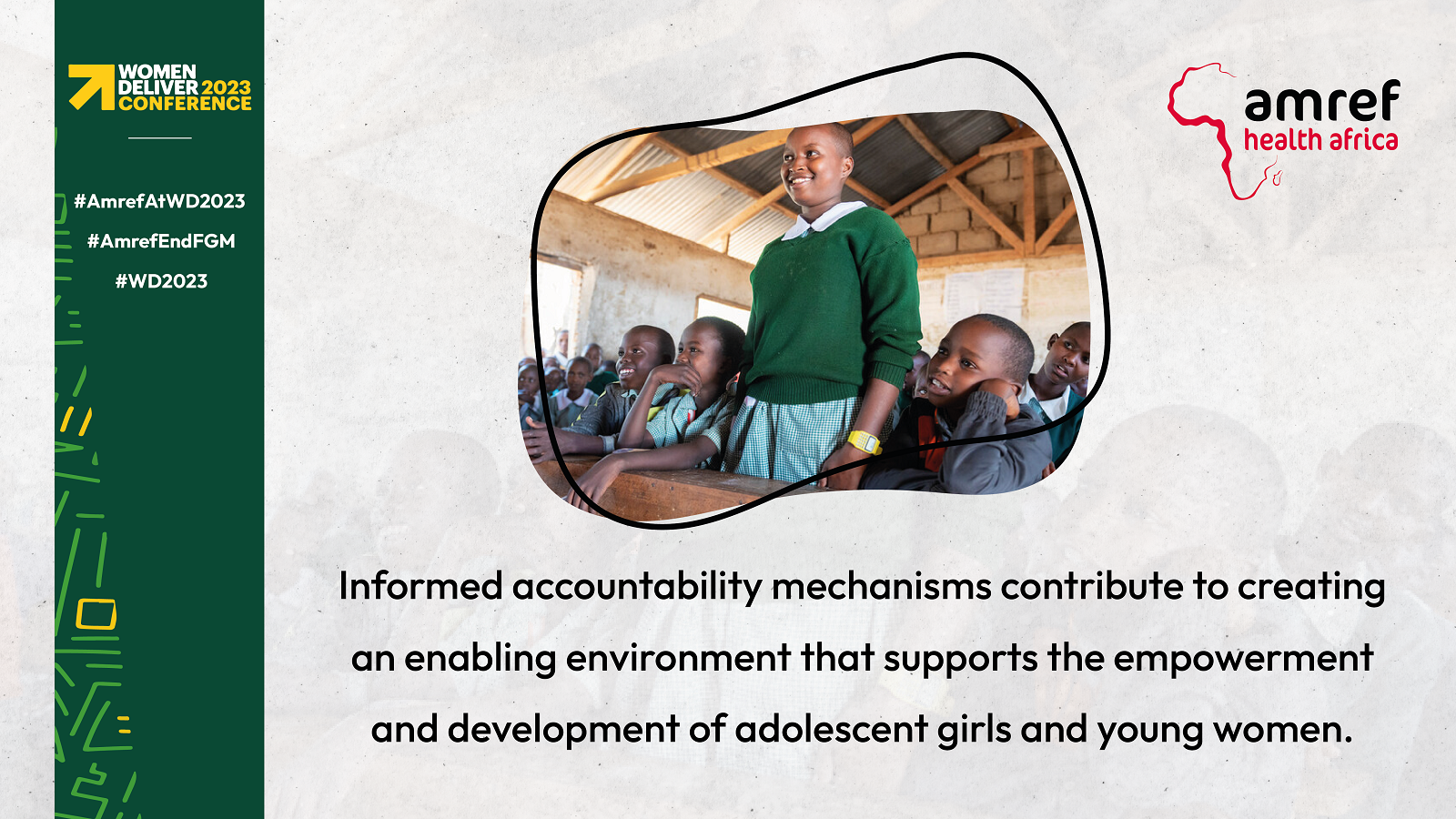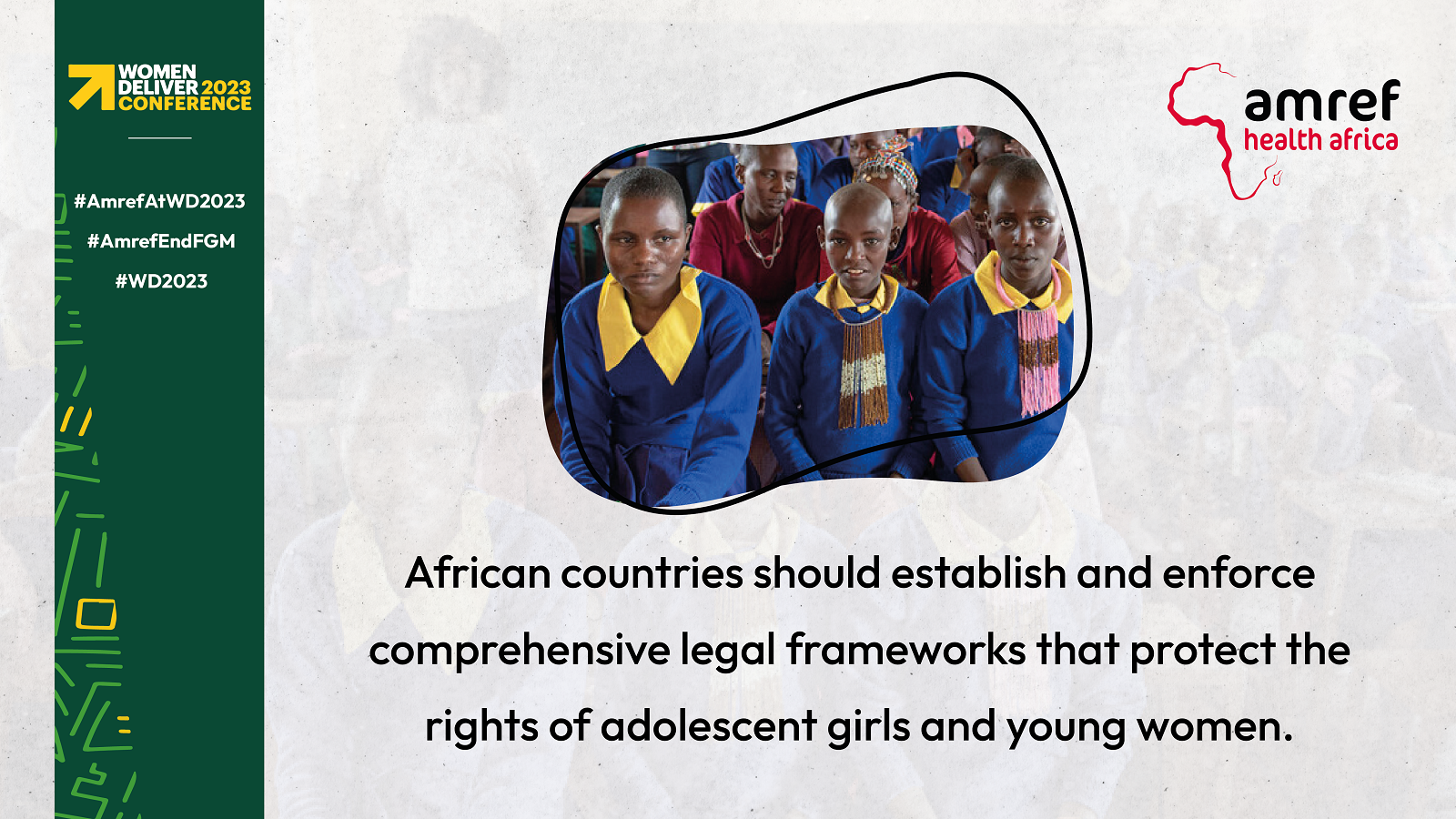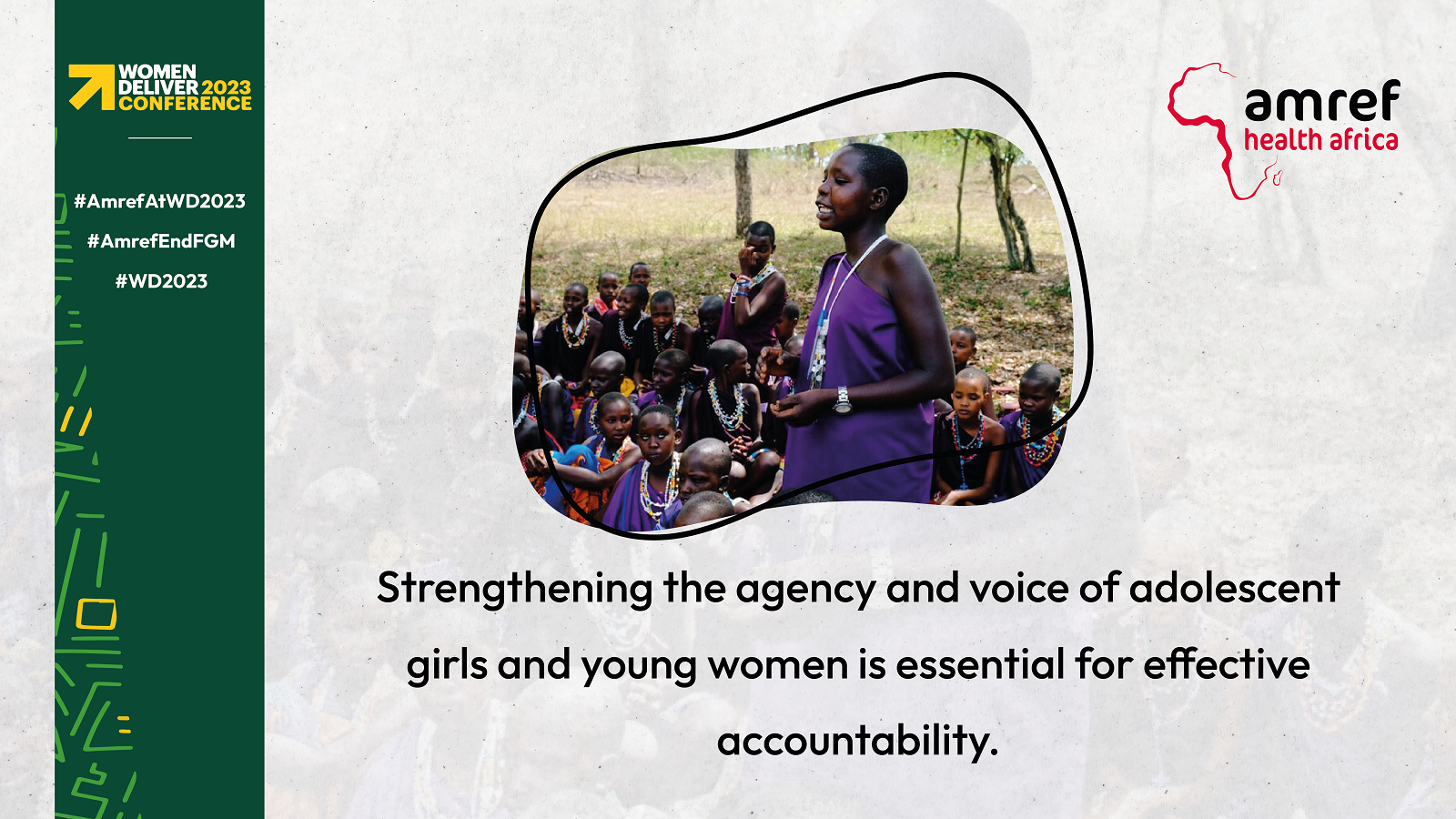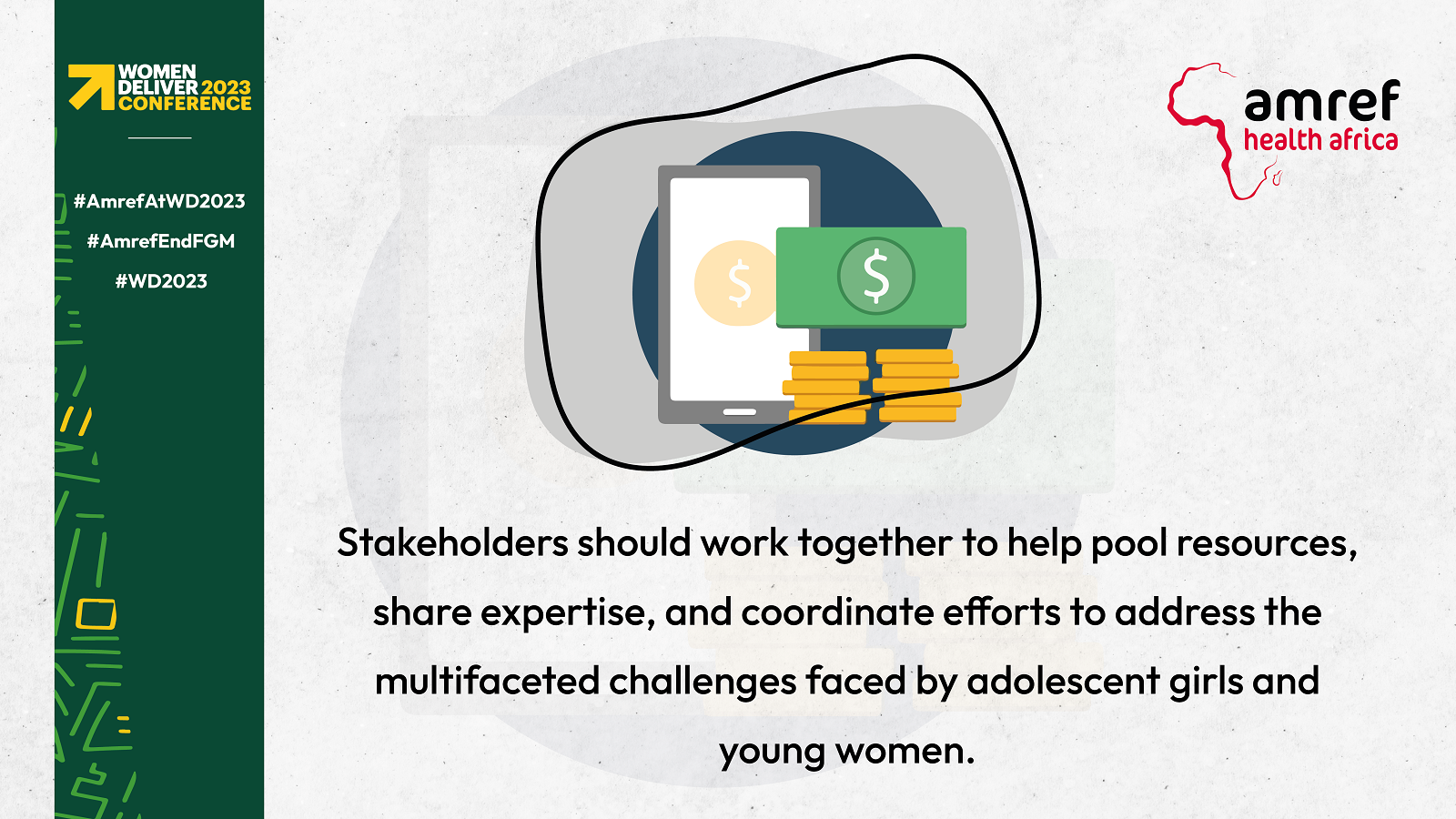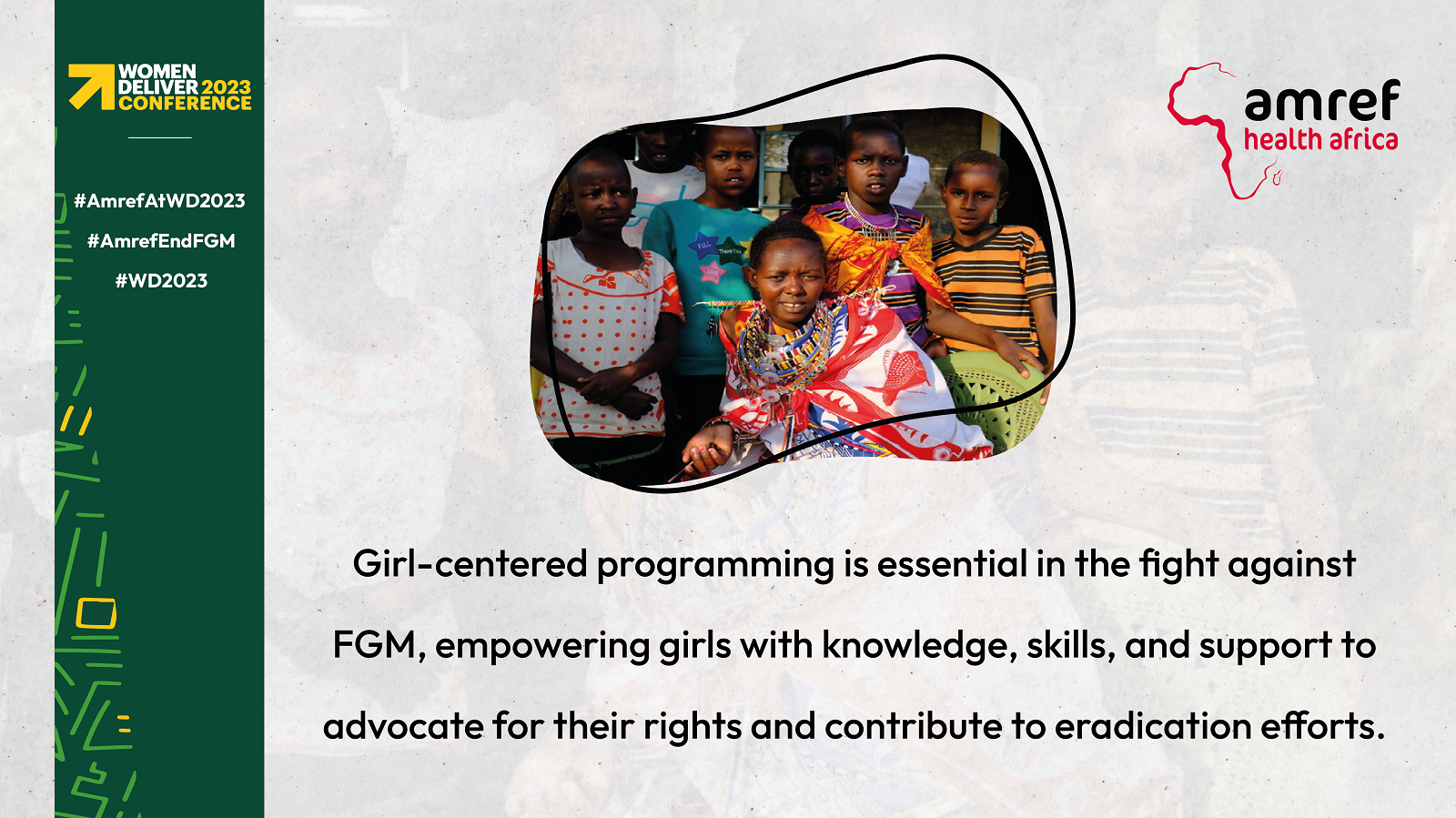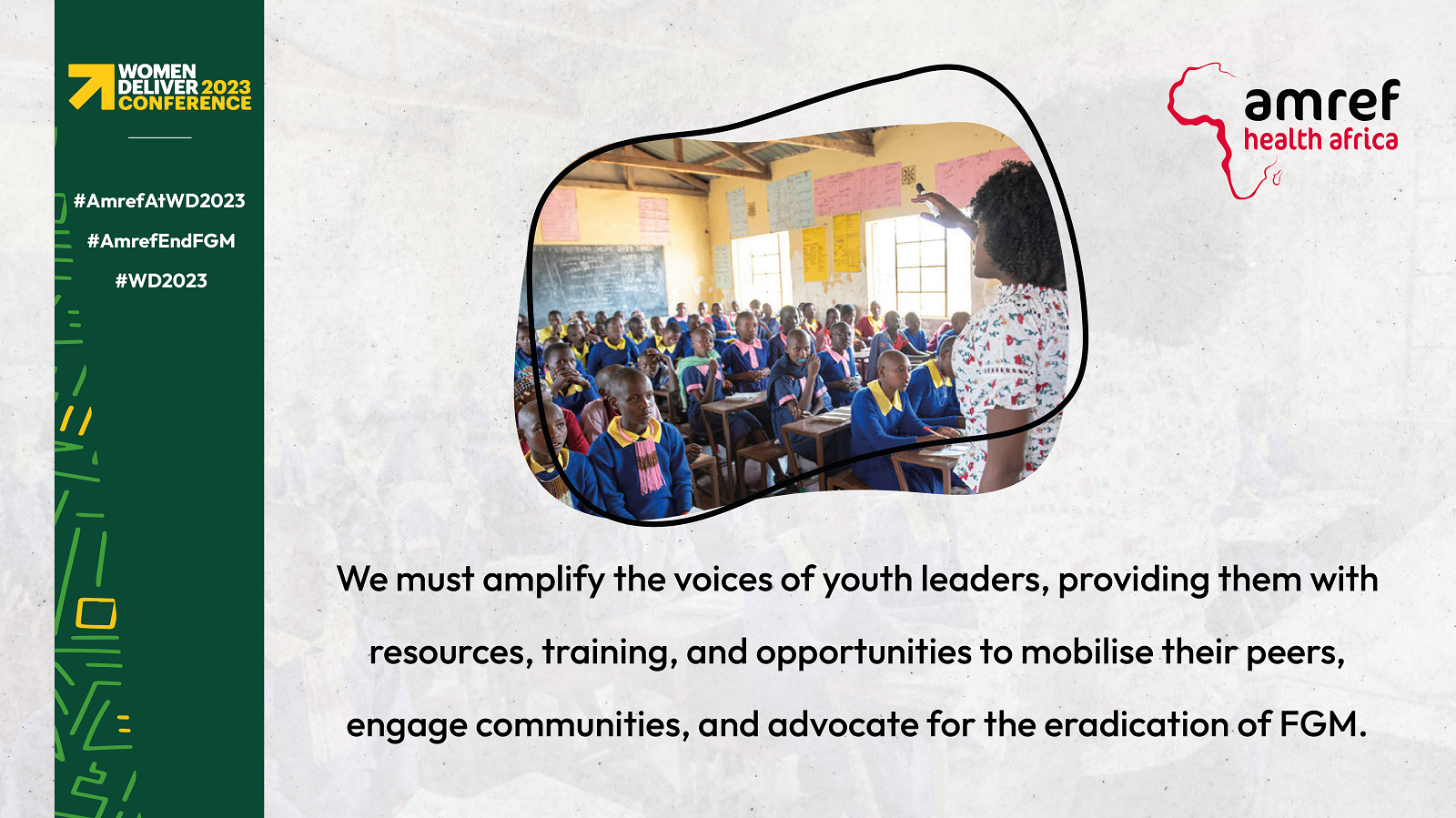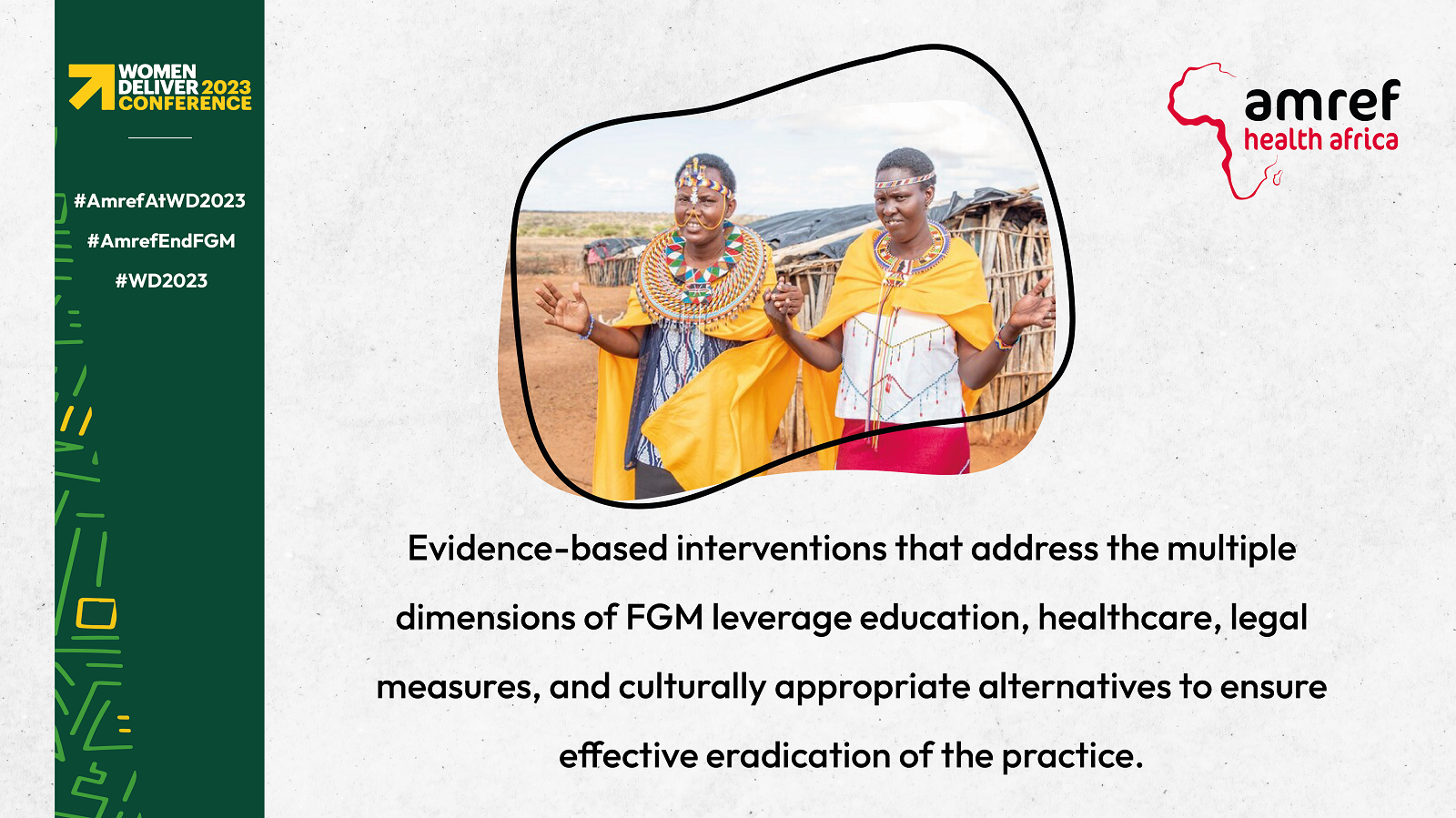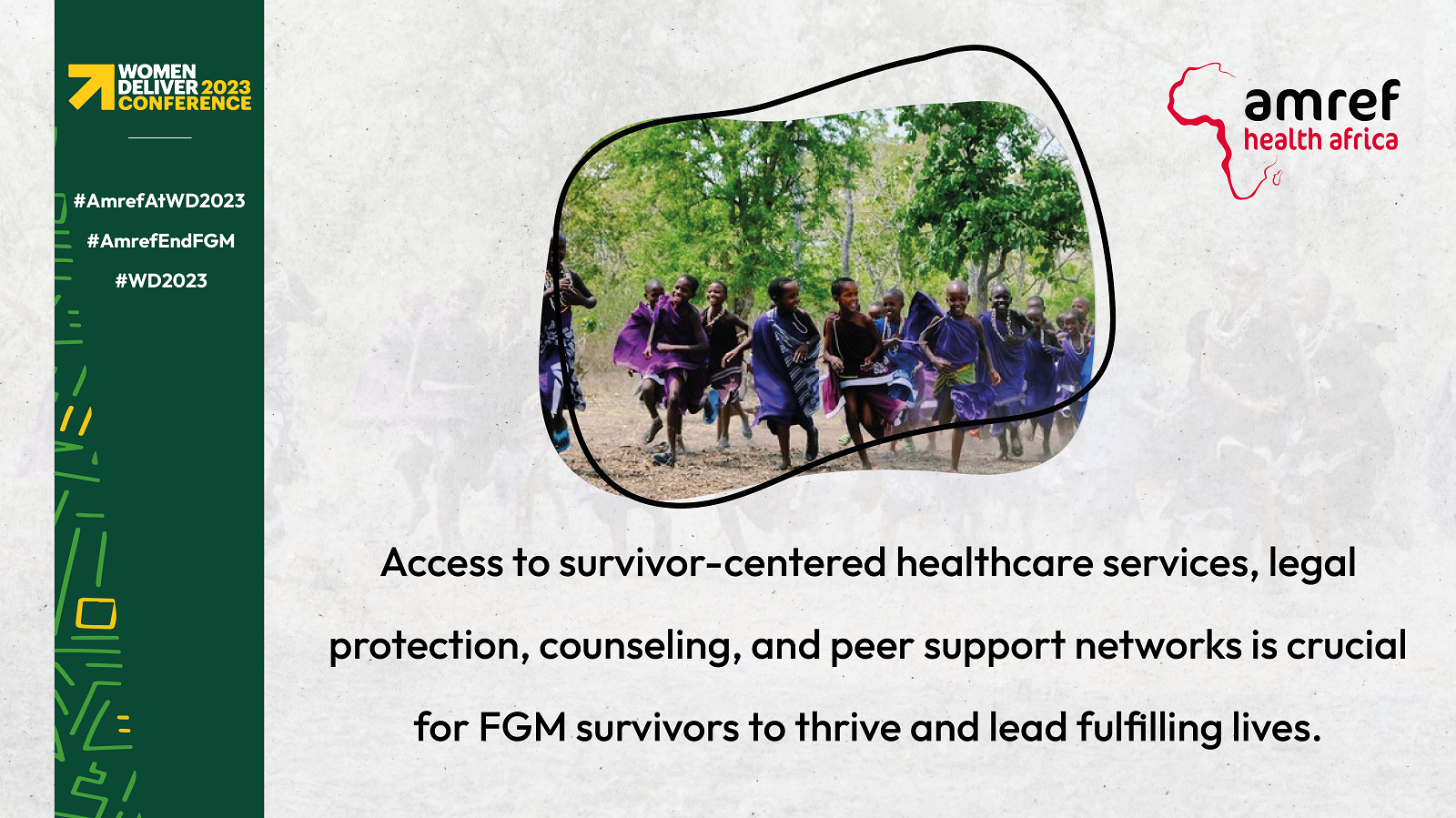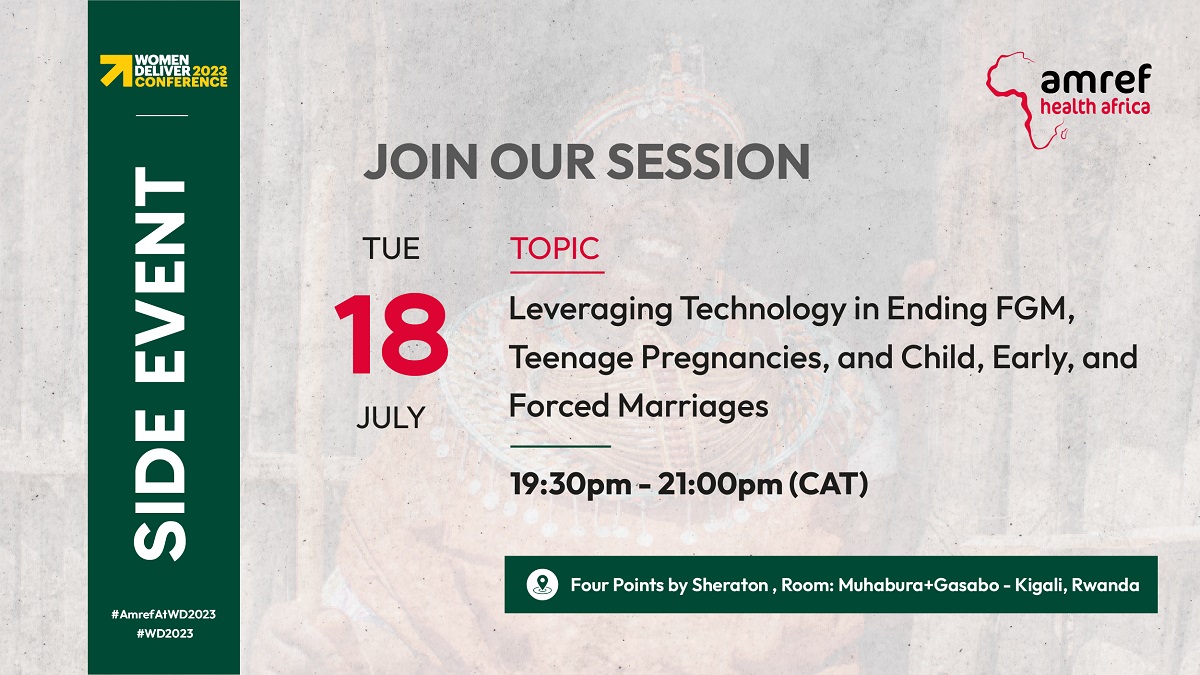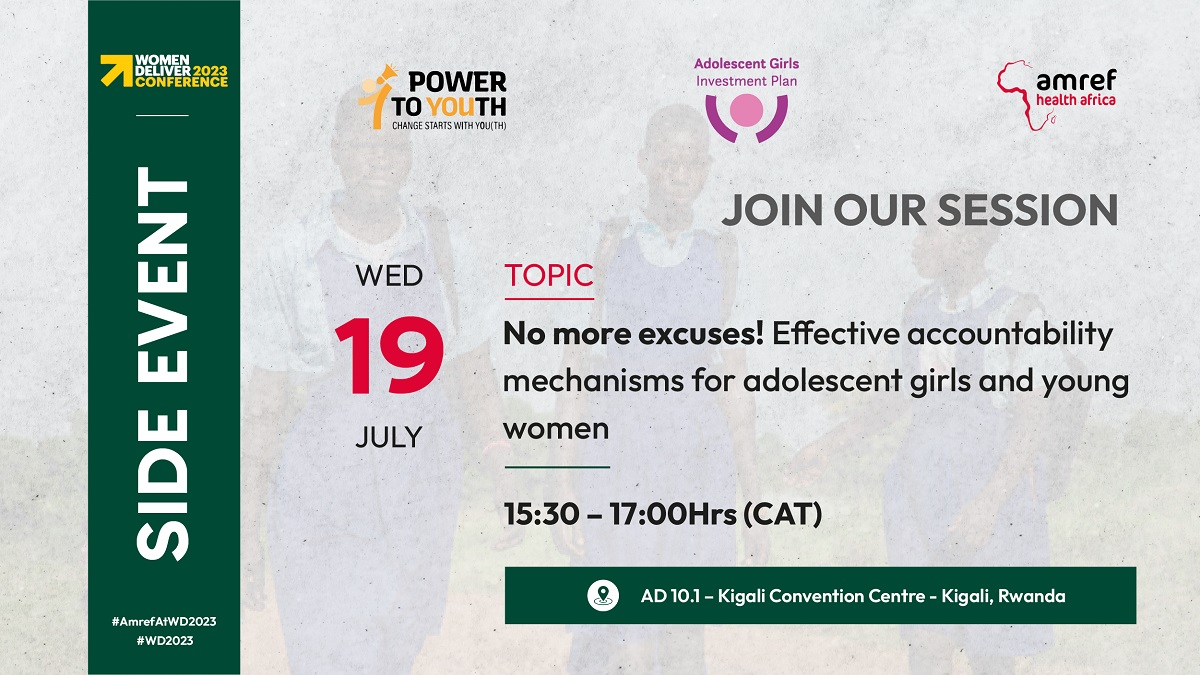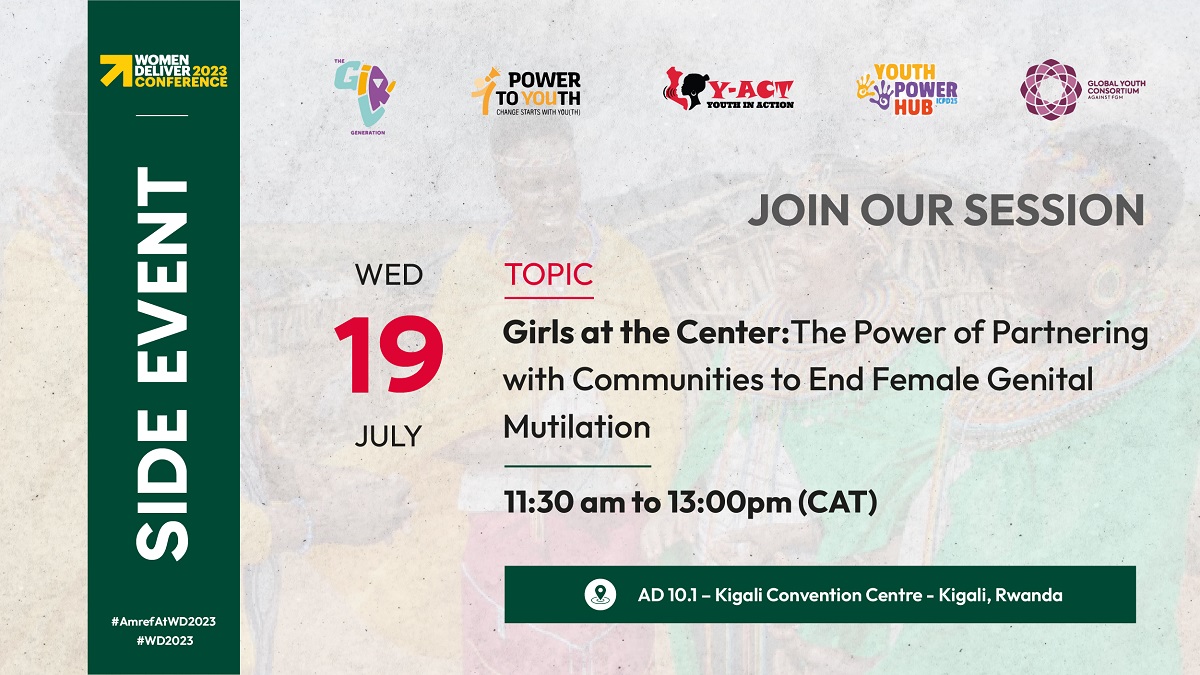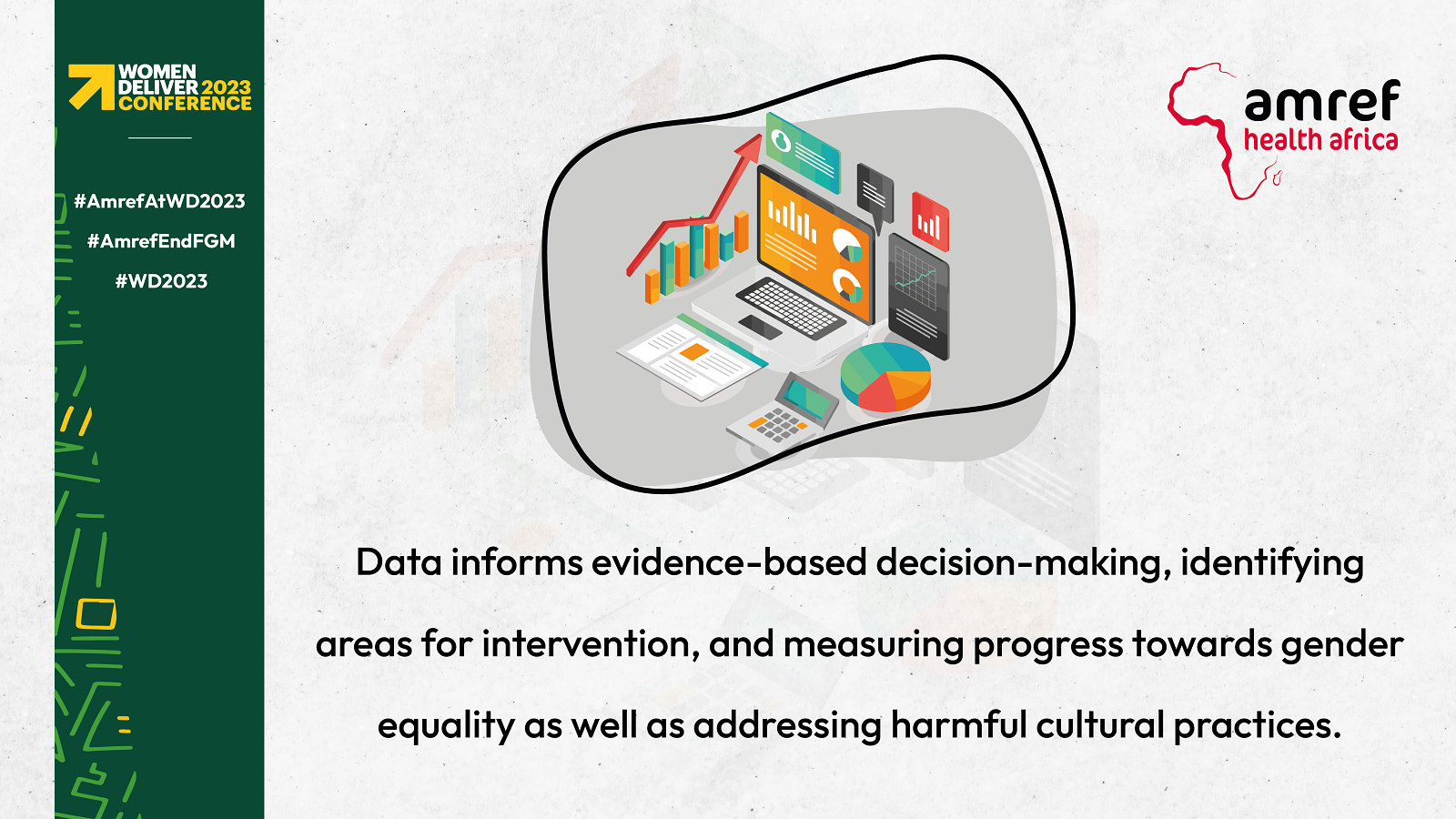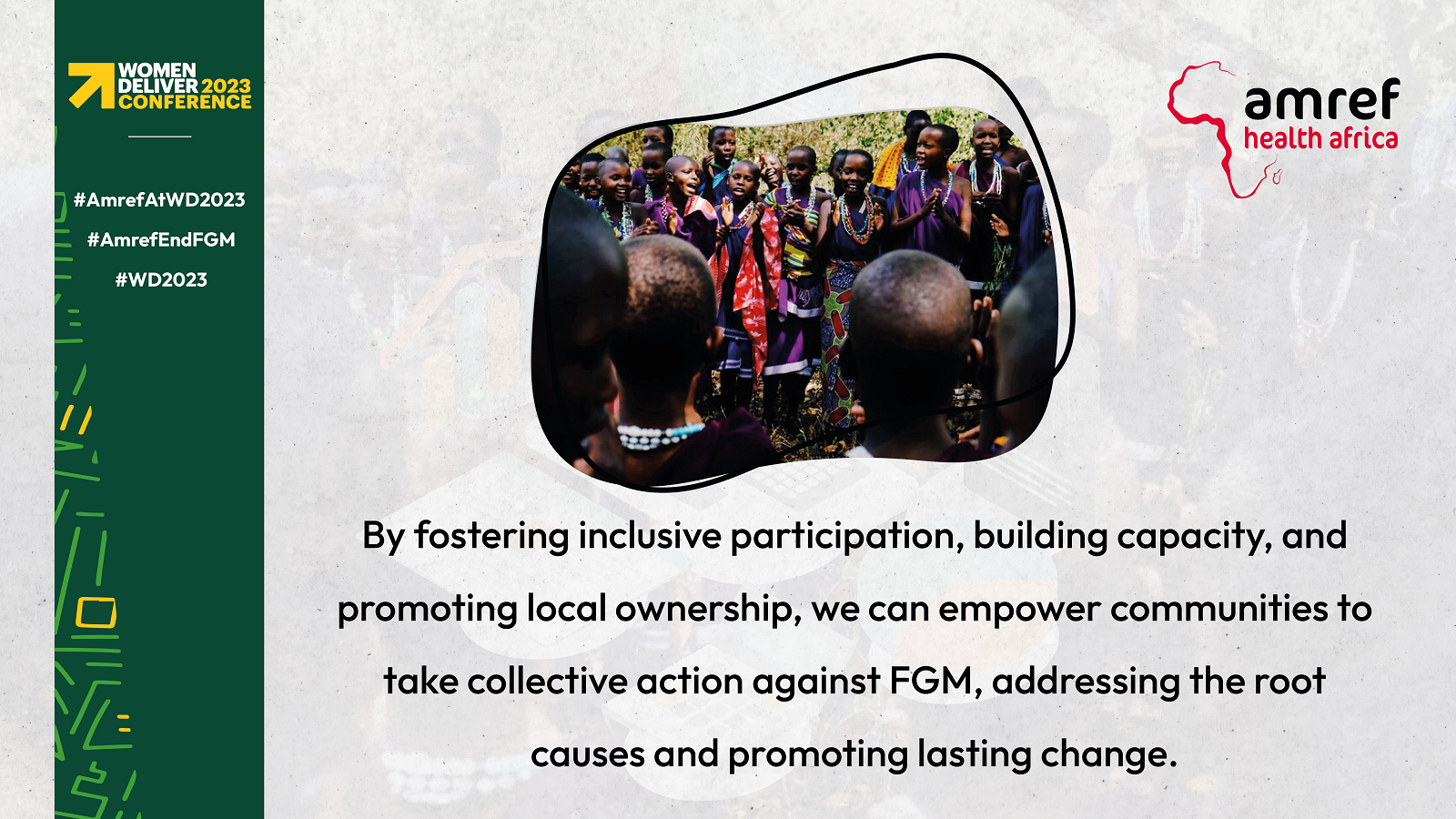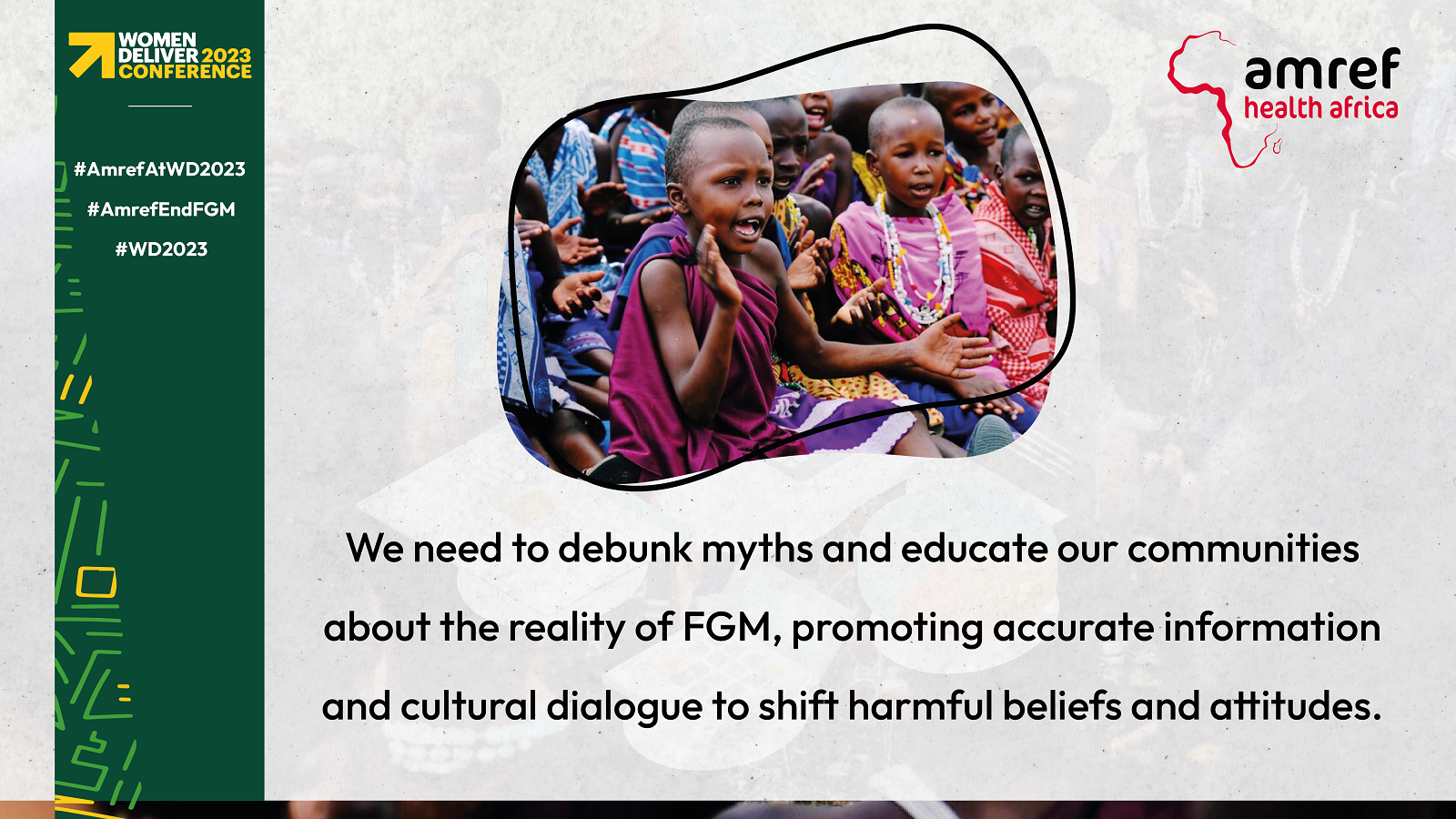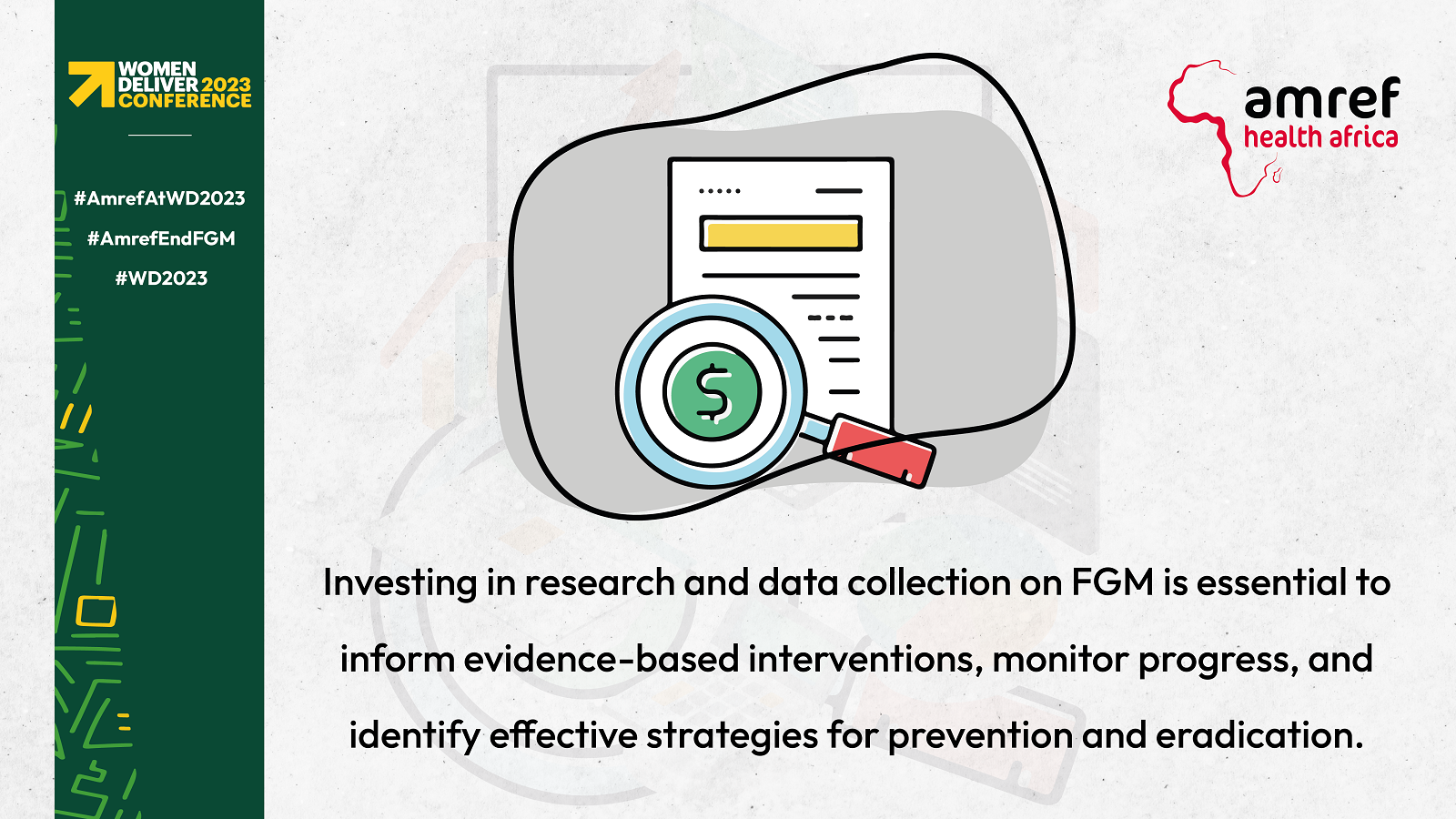Women Deliver 2023 Conference
17-20 July 2023 | Kigali, Rwanda
The Women Deliver 2023 Conference (WD2023) will take place in-person in Kigali, Rwanda, as well as virtually, from 17-20 July 2023. As one of the largest multi-sectoral convenings to advance gender equality
Share facts about #WD2023
These communication tools are available to share and print during the Women Deliver 2023 Conference. Feel free to display and/or distribute on social media. On Twitter please tag @Amref_Worldwide when posting graphics from this social media toolkit.
# Primary Hashtags
AmrefAtWD2023
# Secondary Hashtags
#AmrefEndFGM
#WD2023
Key Messages and Tweets
Technology offers a powerful tool for raising awareness, facilitating access to information and support, and mobilizing action towards ending harmful cultural practices.
Social media platforms, websites, and mobile applications can be utilized to disseminate accurate information, share personal stories, and challenge misconceptions surrounding harmful cultural practices such as FGM/C, teenage pregnancies as well as child early and forced marriage.
Technology offers an opportunity to bridge gaps in accessing information and support services. Mobile applications and helpline services can be developed to provide confidential counseling, guidance, and referrals to girls and young women at risk or already affected by FGM/C, teenage pregnancies, or child marriage.
Online platforms (social media) can facilitate virtual community gatherings, webinars, and forums to engage community members, religious leaders, educators, and policymakers in discussions aimed at shifting attitudes and norms related to retrogressive cultural practices.
Technology enhances data collection, monitoring, and evaluation efforts to better understand the prevalence and drivers of FGM/C, teenage pregnancies, and child, early, and forced marriages. Using mobile surveys and data collection tools helps to gather real-time information, enabling policymakers and organizations to tailor interventions and allocate resources more effectively.
Governments, NGOs, private sectors and tech companies should work together to develop user-friendly and culturally sensitive digital to ensure their relevance and effectiveness in addressing harmful cultural practices.
Across Africa, adolescent girls and young women face numerous challenges (gender inequality, limited access to education, early marriage, sexual and reproductive health risks, and economic disparities) that hinder their social, economic, and political empowerment.
Accountability mechanisms play a central role in safeguarding the rights of adolescent girls and young women. They offer avenues for monitoring progress, identifying gaps, and demanding action from governments and institutions.
We need to institute frameworks and legislations against child marriage, gender-based violence, and discrimination and implement international conventions and treaties that promote gender equality.
To ensure effective accountability, accurate and disaggregated data on the status and needs of adolescent girls and young women must be collected and regularly monitored.
Civil society organizations, including women's rights groups, should be actively involved in monitoring and advocating for the rights of adolescent girls and young women.
Education and skills training should be provided to enhance capacity of adolescent girls and young women to help them articulate their needs, participate in decision-making processes, and hold duty bearers accountable for their commitments.
Effective accountability mechanisms require collaboration among various stakeholders, including governments, civil society, international organizations, and the private sector.
Investing in girl-centered programs that provide education, skills-building, safe spaces, and community engagement can empower girls to challenge and change social norms, leading to the eradication of FGM/C in our communities.
Community empowerment is key to effectively combatting FGM/C, involving community members, religious leaders, and traditional healers in decision-making processes and intervention planning.
Youth leaders play a pivotal role in driving sustainable change in their communities regarding FGM/C, using their influence and platforms to raise awareness and advocate for the rights of women and girls.
Evidence-based interventions have shown positive results in combating FGM/C, including community education campaigns, healthcare provider training, legal measures, and alternative rites of passage.
Enhancing survivor protection and support is crucial in addressing the physical, emotional, and psychological needs of those affected by FGM/C, empowering them to heal and reclaim control over their lives.
Addressing common misconceptions and cultural beliefs surrounding FGM/C is crucial in creating a supportive environment that challenges the practice and protects the rights of women and girls.
By prioritizing research and data collection, we can strengthen our understanding of the prevalence, impact, and root causes of FGM/C, enabling us to develop targeted interventions and track progress effectively in our communities.

